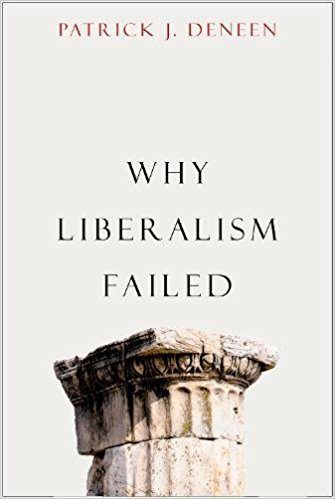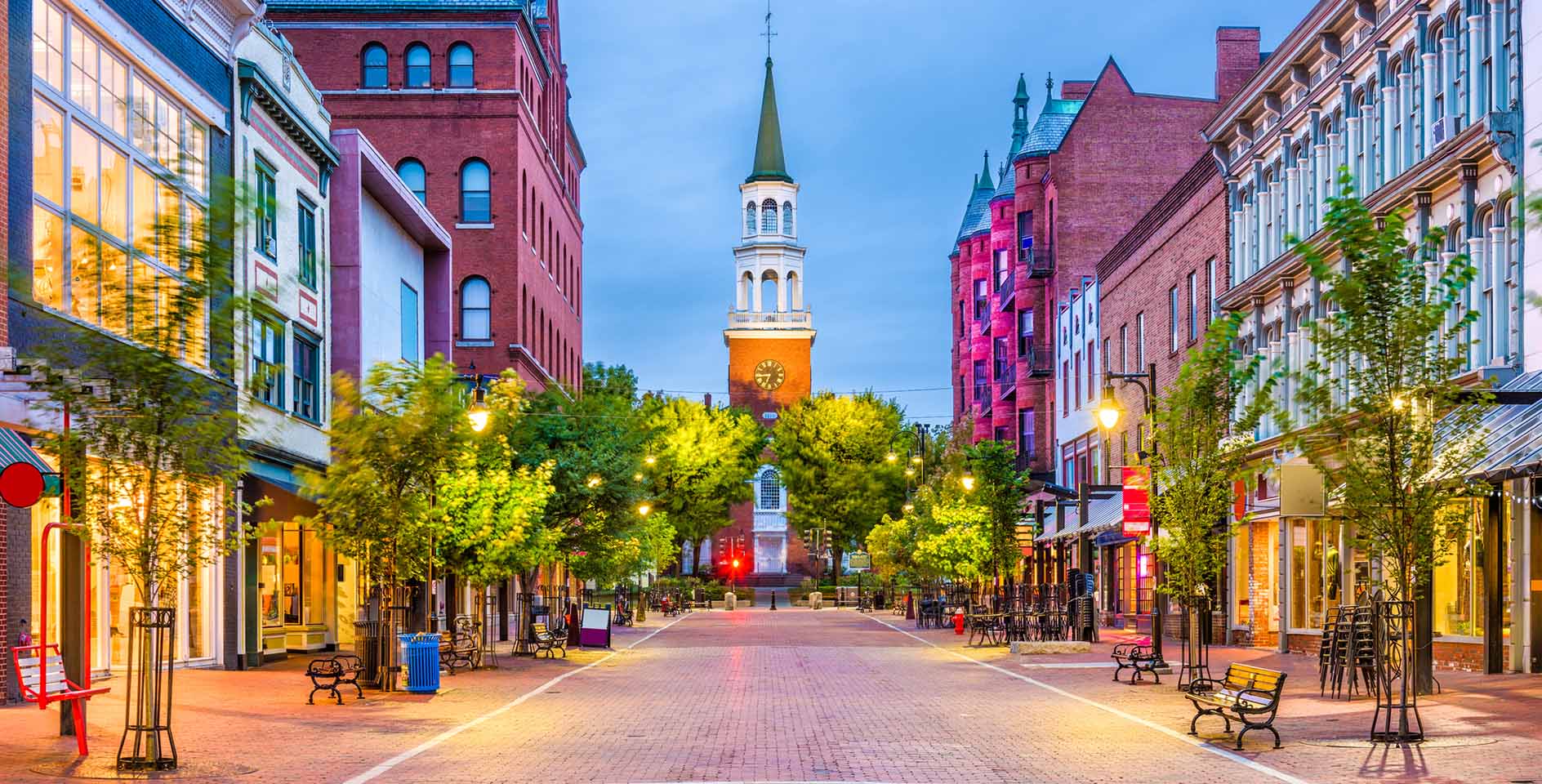Political philosophy is rarely a topic of conversation in popular culture today. Streaming video services like Netflix and Hulu alongside myriad social media platforms generally provide more than sufficient entertainment to forestall discussions of the finer points of political theory—though, in fairness, both Facebook and Twitter routinely provoke considerable volumes of political squabbling. Even so, all of us live together in the real world. And as we live our lives, we encounter each day a common culture, the state of which concerns all of us. So the question merits discussion: what is the state of things today?
In his book, Why Liberalism Failed, Patrick Deneen offers a stark appraisal of Western culture. Deneen, professor of Political Science at Notre Dame University, is a first-rate scholar in the history of political thought and a critical observer of American culture and public life. Within the pages of Why Liberalism Failed, readers will encounter Deneen’s critical assessment of our current situation structured around his devastating critique of classical liberalism—the longstanding political theory that lies at the foundation of modern Western culture.
Broken by design
Deneen’s primary contention is that liberalism has failed. More specifically, in his estimation liberalism failed because it has, for more than two centuries, been wildly successful. And this is no mere wordplay. Deneen recognizes that classical liberalism has produced impressive results and that the unprecedented successes, innovations, and achievements credited to liberalism would have otherwise failed to become reality (19). Such breakthroughs include advances in industry, technology, medicine, flight, space exploration, and countless other scientific developments. All of this Deenen regards as fruit of the liberal vision that emerged from the Enlightenment, the fundamental elements of which were the democratic ideals of human equality, personal liberty, and limited government.
But as he surveys the many triumphs of modern Western culture, Deneen suggests that even these colossal feats may be insufficient to insulate liberalism from intense scrutiny. As Deneen contends, what we are witnessing in the West today—the fracturing of modern society—is the result of a flourishing liberal order. And this, he submits, is the problem: liberalism is killing itself.
Central to classical liberalism is a vision of freedom, a kind of libertarian autonomy that stands opposed to limitations or restraints—regardless of their nature. The problem with this vision, according to Deneen, is that it destroys the vital link between individuals and the institutions that separate individuals from the state. And this is no minor issue. Such mediating institutions including the family, the church, one’s local community, and sundry forms of civic engagement have, for millennia, borne primary responsibility for the formation of individuals. Together, these various institutions, whether it be religious gatherings, Girl Scouts, little league, or domestic labor, worked in cooperation with the family to form a sort of crucible for shaping a child’s character and morals. Or, to put it in Deneen’s words, to cultivate a strong vision of “virtue” and “self-rule” (37). To our detriment, liberalism’s vision of freedom has eroded society’s commitment to this process. Thus, we no longer reap its benefits.
Loosening the bonds
It is at this point that Christians can benefit most directly from Deneen’s work. Each of us profit from the successes of liberalism on a daily basis, but we likewise suffer from its liabilities. Unfortunately, as we live our daily lives within such a well-established liberal society, we are for the most part ignorant of its design. Deneen’s book highlights briefly the assets of liberalism—things we are sure to enjoy by default—but the work is dedicated to exposing its deficiencies. And as he demonstrates, it is liberalism’s weaknesses that most threaten both the culture on a larger scale, and the lives of our families, churches, and communities on a smaller—but arguably more important—scale.
Most concerning among the issues Deneen examines is this idea of loosening bonds. As he remarks, “The loosening of social bonds in nearly every aspect of life—familial, neighborly, communal, religious, even national—reflects the advancing logic of liberalism and is the source of its deepest instability” (29). In other words, liberalism’s vision of freedom and autonomy has taken us too far. As a society, we’ve determined to remove every obstacle and to sacrifice all in the name of self-determination. One is now expected to view these “social bonds” with suspicion and permitted to consider any obligations that arise from things like familial and religious commitments as burdensome or oppressive.
Deneen claims that this is much more than a glitch in the system; it is instead, the inevitable outworking of the liberal vision. And this is his larger point. Since its inception, liberalism has depended on borrowed capital—on the vestiges of practices and social commitments that heretofore served to churn out responsible and respectable citizens. But through its success, liberalism has brought down the curtain on these practices by freeing us from all social responsibilities and commitments. But what kind of future—we may ask—awaits a society without such things? As Deneen sees it, liberal society will be ruined ultimately by an illiberal citizenry.
A Christian view of liberty
To remedy our current state, Deneen contends we need a new vision, a “liberty after liberalism”—not another comprehensive theory to supplant liberalism but a simple commitment to build upon the natural and fundamental relationships of human life. To that end, he calls for “people of goodwill to form distinctive countercultural communities in ways distinct from the deracinated and depersonalized form of life that liberalism seems above all to foster” (179). In other words, he calls for dissent.
There is much to appreciate in Deneen’s work. He writes with precision and makes a compelling case regarding the failure of liberalism. But while he skillfully exposes many of its deficiencies, I would join those suggesting there are a multitude of corrective efforts available short of abandoning the liberal order. Still, Deneen’s solution is, at least in part, precisely the correct course of action: the church must dissent.
For too long, Christians have willfully followed the culture wherever it led. But as society continues to place greater emphasis on the freedom of the individual and the value of self-determination, the church must offer a different vision. We must not shy away from calling sinners to deny themselves and follow Christ (Matt. 16:24). We must redouble our efforts to promote healthy families and to cultivate true community among our congregations. We must be concerned with instilling virtue, by teaching one another to live in obedience to the gospel (Rom. 1:5).
We may not turn back the tide of the culture, but we can offer the world a better picture of both liberty and flourishing. And we can do this by renewing our focus on the church as an outpost of the kingdom of heaven, a place where individuals are welcomed into a new family and a vibrant community being built by the Spirit. As the apostle Paul stated, “Where the Spirit of the Lord is, there is freedom” (2 Cor. 3:17). That is a political philosophy for the church.










